Shehryar Fazli in the Los Angeles Review of Books:
 Immediately after the attack, a photograph circulated of Rushdie being wheeled to an emergency helicopter; the volume of blood and the places he was bleeding from didn’t look promising. The longer the information gap stretched, the eerier our preparation for a post-Rushdie world became, one we’d feared even after Iran effectively lifted the fatwa in 1998.
Immediately after the attack, a photograph circulated of Rushdie being wheeled to an emergency helicopter; the volume of blood and the places he was bleeding from didn’t look promising. The longer the information gap stretched, the eerier our preparation for a post-Rushdie world became, one we’d feared even after Iran effectively lifted the fatwa in 1998.
Pull through! Pull through! I pleaded over and over, uselessly. To later receive that very affirmation, like a direct response from the macrocosm, was to see the approaching darkness yield a slice of light. Over the ensuing days and months, the news trickled in. He was off the ventilator. He was speaking. He was cracking jokes. He’d lost his right eye forever. He’d attended an event virtually. He was making public appearances and giving interviews. Now, with the release of his 2024 memoir Knife: Meditations After an Attempted Murder, comes a summation of that terrifying period but also, to some extent, of a long, groundbreaking career.
More here.

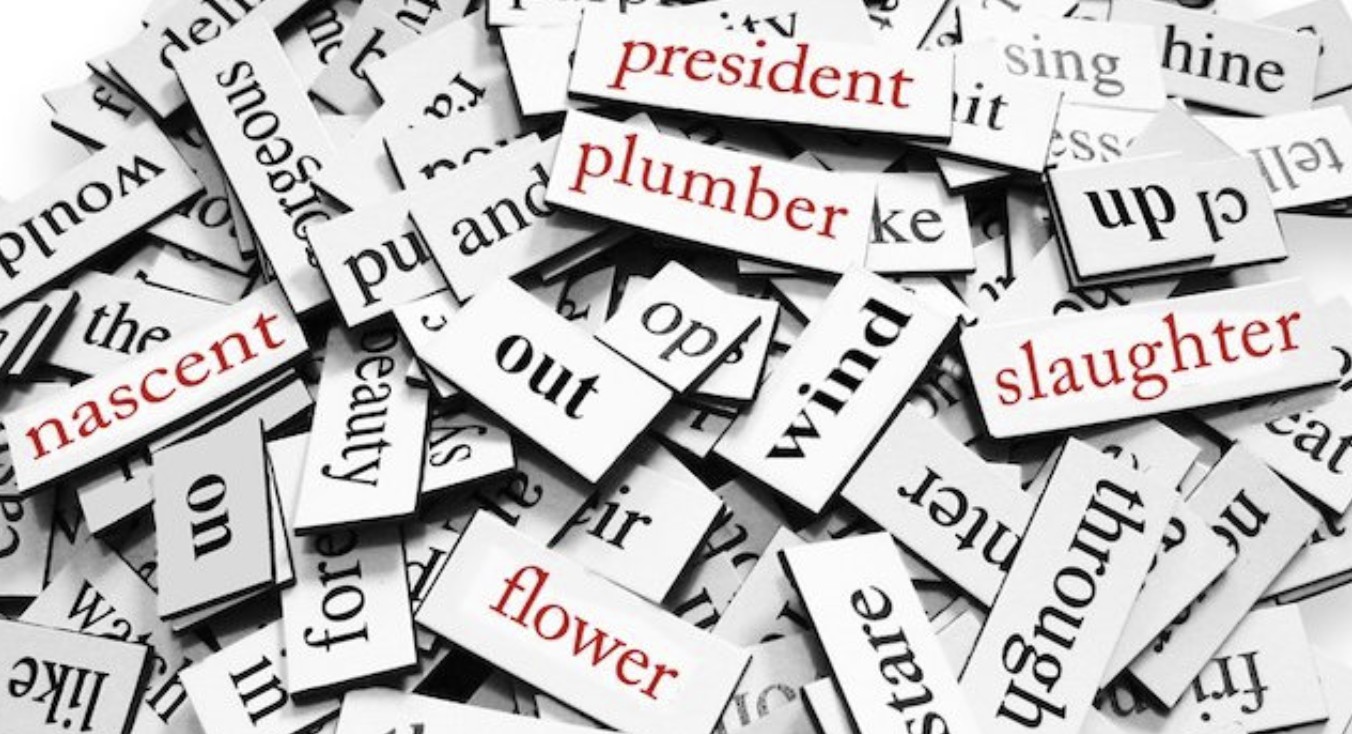 How children learn language has long been of interest to those concerned with its evolution. The idea that ‘ontogeny recapitulates phylogeny’ has been promoted, which means the stages of child development on their way to adulthood replicate those of our human ancestors on their way to becoming modern humans. This idea has been applied to language acquisition and its evolution, but I’ve never been persuaded. It is intellectually problematic because our human ancestors were never ‘on their way’ to anywhere other than being themselves. My interest in language acquisition is different and twofold.
How children learn language has long been of interest to those concerned with its evolution. The idea that ‘ontogeny recapitulates phylogeny’ has been promoted, which means the stages of child development on their way to adulthood replicate those of our human ancestors on their way to becoming modern humans. This idea has been applied to language acquisition and its evolution, but I’ve never been persuaded. It is intellectually problematic because our human ancestors were never ‘on their way’ to anywhere other than being themselves. My interest in language acquisition is different and twofold. So far as I can determine Ted Hughes never went shopping with Sylvia Plath. He thought her flair for fashion, and her materialistic desires, frivolous. “I need to curb my lust for buying dresses,” she wrote to herself on May 9, 1958 while the married couple were living in Northampton, Massachusetts. Four years later, on her own in London during her last days, she shopped like mad, threw away her country duds, reveled in a new hairdo, and enjoyed wolf whistles on the street. She had repressed a good deal of herself to please the man whose unkempt, often dirty appearance she had schooled herself to tolerate.
So far as I can determine Ted Hughes never went shopping with Sylvia Plath. He thought her flair for fashion, and her materialistic desires, frivolous. “I need to curb my lust for buying dresses,” she wrote to herself on May 9, 1958 while the married couple were living in Northampton, Massachusetts. Four years later, on her own in London during her last days, she shopped like mad, threw away her country duds, reveled in a new hairdo, and enjoyed wolf whistles on the street. She had repressed a good deal of herself to please the man whose unkempt, often dirty appearance she had schooled herself to tolerate. When it comes to gender equality, no society is perfect, but some are widely understood to have come further than others. These societies do a better job of offering equal opportunities, rights and responsibilities, and minimising structural power differences between men and women. One might expect that men and women in these societies would also become more similar to each other in terms of personality and other psychological qualities. Research has previously found differences in men’s and women’s average levels of characteristics such as
When it comes to gender equality, no society is perfect, but some are widely understood to have come further than others. These societies do a better job of offering equal opportunities, rights and responsibilities, and minimising structural power differences between men and women. One might expect that men and women in these societies would also become more similar to each other in terms of personality and other psychological qualities. Research has previously found differences in men’s and women’s average levels of characteristics such as  My apartment has just now been completed. I don’t know which object did it; suddenly everything quietened down and it immediately became inhabited and familiar, as if no longer new—and yet … I would very much like to tell you how everything is, and where and why things are the way they are. Well, there is a small, unremarkable entryway, and a kitchen that will become interesting due only to my daily attempts at cooking (I have to prepare everything myself!); from the entryway you step through a small door and under a dark red curtain of heavy, woven linen (sold at Bernheimer’s in Munich as toile japonaise) into my very large study. There is a huge three-part window partially wedged into a bay as wide as the room itself. To the right of the bay, a glass door leads to a small balcony, while on the left the bay is joined by a blank wall to the wall of the study. Underneath the window there is a broad bench covered with a blue-and-red blanket from Abruzzo(!), and two steps in front of this bench, in the center of the room, is the main desk. There is a second, quite long desk set up as a working table for evening tasks—independent of the window, at an angle in front of the stove, and diagonally blocking the corner. To the left of the large window there hangs a narrow rug with a colorful border that keeps that corner dark, and in front of it stands the yellow samovar on a Russian base, surrounded by some Russian things, images, and holy icons. A very broad chair covered by a good, antique Turkish rug connects (to the left of the wall) to the cupboard for the samovar so that it’s easy to put down one’s glass of tea there. The Turkish blanket is stretched up the wall to the so-called ‘Rubens’—the Adoration of the Magi (oil painting—old, 2 meters long, 47 centimeters high)—and provides the backdrop for the best heirloom: a family crest in a precious silver frame. Then there is a small green table where I have to eat what I cook—and a small sideboard.
My apartment has just now been completed. I don’t know which object did it; suddenly everything quietened down and it immediately became inhabited and familiar, as if no longer new—and yet … I would very much like to tell you how everything is, and where and why things are the way they are. Well, there is a small, unremarkable entryway, and a kitchen that will become interesting due only to my daily attempts at cooking (I have to prepare everything myself!); from the entryway you step through a small door and under a dark red curtain of heavy, woven linen (sold at Bernheimer’s in Munich as toile japonaise) into my very large study. There is a huge three-part window partially wedged into a bay as wide as the room itself. To the right of the bay, a glass door leads to a small balcony, while on the left the bay is joined by a blank wall to the wall of the study. Underneath the window there is a broad bench covered with a blue-and-red blanket from Abruzzo(!), and two steps in front of this bench, in the center of the room, is the main desk. There is a second, quite long desk set up as a working table for evening tasks—independent of the window, at an angle in front of the stove, and diagonally blocking the corner. To the left of the large window there hangs a narrow rug with a colorful border that keeps that corner dark, and in front of it stands the yellow samovar on a Russian base, surrounded by some Russian things, images, and holy icons. A very broad chair covered by a good, antique Turkish rug connects (to the left of the wall) to the cupboard for the samovar so that it’s easy to put down one’s glass of tea there. The Turkish blanket is stretched up the wall to the so-called ‘Rubens’—the Adoration of the Magi (oil painting—old, 2 meters long, 47 centimeters high)—and provides the backdrop for the best heirloom: a family crest in a precious silver frame. Then there is a small green table where I have to eat what I cook—and a small sideboard.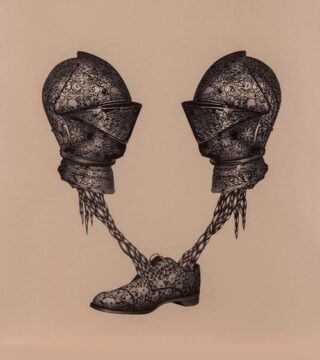 T
T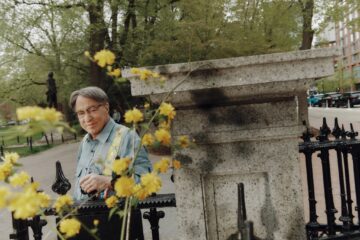 Sitting near a window inside Boston’s Four Seasons Hotel, overlooking a duck pond in the city’s Public Garden, Ray Kurzweil held up a sheet of paper showing the steady growth in the amount of raw computer power that a dollar could buy over the last 85 years. A neon-green line rose steadily across the page, climbing like fireworks in the night sky. That diagonal line, he said, showed why humanity was just 20 years away from
Sitting near a window inside Boston’s Four Seasons Hotel, overlooking a duck pond in the city’s Public Garden, Ray Kurzweil held up a sheet of paper showing the steady growth in the amount of raw computer power that a dollar could buy over the last 85 years. A neon-green line rose steadily across the page, climbing like fireworks in the night sky. That diagonal line, he said, showed why humanity was just 20 years away from 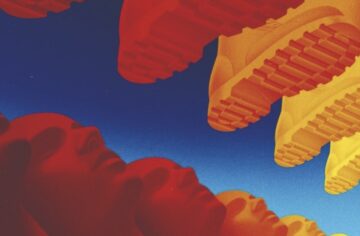 There is Orwell the human being. There is Orwell the novelist. There is Orwell the intellectual, the critic, the journalist, the essayist, the radical. But lately, George Orwell—who was born Eric Arthur Blair and who never fully abandoned his original name—has increasingly come to be regarded as a modern oracle, a gifted soothsayer who predicted with terrifying accuracy how fragile and fallible our political systems were, how close the shadow of authoritarianism. His body of work has become a compass to help us navigate our way in times of democratic recession and backsliding, as is the case worldwide. Among all his books, the one that has left the deepest impact on generations of readers across borders is, no doubt, Nineteen Eighty-Four.
There is Orwell the human being. There is Orwell the novelist. There is Orwell the intellectual, the critic, the journalist, the essayist, the radical. But lately, George Orwell—who was born Eric Arthur Blair and who never fully abandoned his original name—has increasingly come to be regarded as a modern oracle, a gifted soothsayer who predicted with terrifying accuracy how fragile and fallible our political systems were, how close the shadow of authoritarianism. His body of work has become a compass to help us navigate our way in times of democratic recession and backsliding, as is the case worldwide. Among all his books, the one that has left the deepest impact on generations of readers across borders is, no doubt, Nineteen Eighty-Four.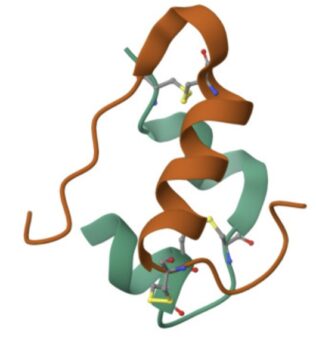 Insulin is an abomination. Sure, injecting it saves the lives of millions of diabetics, but that injected protein is unnatural and abhorrent, the product of a genetically modified organism! And it’s not even necessary: Rather than playing God to coax single-celled creatures never designed for insulin production to make the stuff, we could be harvesting it naturally, like we used to just a few decades ago. After all, one need only slaughter about 20,000 pigs or cows to provide a pound of insulin!
Insulin is an abomination. Sure, injecting it saves the lives of millions of diabetics, but that injected protein is unnatural and abhorrent, the product of a genetically modified organism! And it’s not even necessary: Rather than playing God to coax single-celled creatures never designed for insulin production to make the stuff, we could be harvesting it naturally, like we used to just a few decades ago. After all, one need only slaughter about 20,000 pigs or cows to provide a pound of insulin! At the height of the COVID-19 pandemic, the U.S. military launched a secret campaign to counter what it perceived as China’s growing influence in the Philippines, a nation hit especially hard by the deadly virus.
At the height of the COVID-19 pandemic, the U.S. military launched a secret campaign to counter what it perceived as China’s growing influence in the Philippines, a nation hit especially hard by the deadly virus. Despite its growing popularity among Anglophone readers, the crónica—a unique form of literary reportage that blurs the lines of fact and fiction—remains a quintessentially Latin American genre. In English, scant studies on the form exist beyond 2002’s
Despite its growing popularity among Anglophone readers, the crónica—a unique form of literary reportage that blurs the lines of fact and fiction—remains a quintessentially Latin American genre. In English, scant studies on the form exist beyond 2002’s  LO. LEE. TA. This is the trip the tip of the tongue expects to take when reading a novel from the point of view of a man currently incarcerated following the rape of a teenage girl he’s groomed. And at the tender age of thirteen pages into Lucas Rijneveld’s My Heavenly Favorite, an attentive reader may indeed murmur “Lolita!” when the unnamed narrator, a former farm veterinarian from the Dutch countryside, refers to the titular “favorite,” also unnamed, as “the fire of my loins.” So far, so Lo.
LO. LEE. TA. This is the trip the tip of the tongue expects to take when reading a novel from the point of view of a man currently incarcerated following the rape of a teenage girl he’s groomed. And at the tender age of thirteen pages into Lucas Rijneveld’s My Heavenly Favorite, an attentive reader may indeed murmur “Lolita!” when the unnamed narrator, a former farm veterinarian from the Dutch countryside, refers to the titular “favorite,” also unnamed, as “the fire of my loins.” So far, so Lo. While the Fourth of July conjures up images of fireworks and parades, barbecues and bonfires, the United States has another Independence Day tradition: naturalizing new citizens. An estimated 11,000 people will celebrate the holiday this year by officially becoming American citizens, double the number from 2023.
While the Fourth of July conjures up images of fireworks and parades, barbecues and bonfires, the United States has another Independence Day tradition: naturalizing new citizens. An estimated 11,000 people will celebrate the holiday this year by officially becoming American citizens, double the number from 2023. 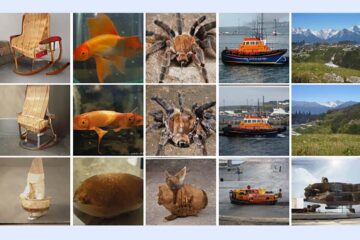 Artificial intelligence systems can now create remarkably accurate reconstructions of what someone is looking at based on recordings of their brain activity. These reconstructed images are greatly improved when the AI learns which parts of the brain to pay attention to. “As far as I know, these are the closest, most accurate reconstructions,” says
Artificial intelligence systems can now create remarkably accurate reconstructions of what someone is looking at based on recordings of their brain activity. These reconstructed images are greatly improved when the AI learns which parts of the brain to pay attention to. “As far as I know, these are the closest, most accurate reconstructions,” says